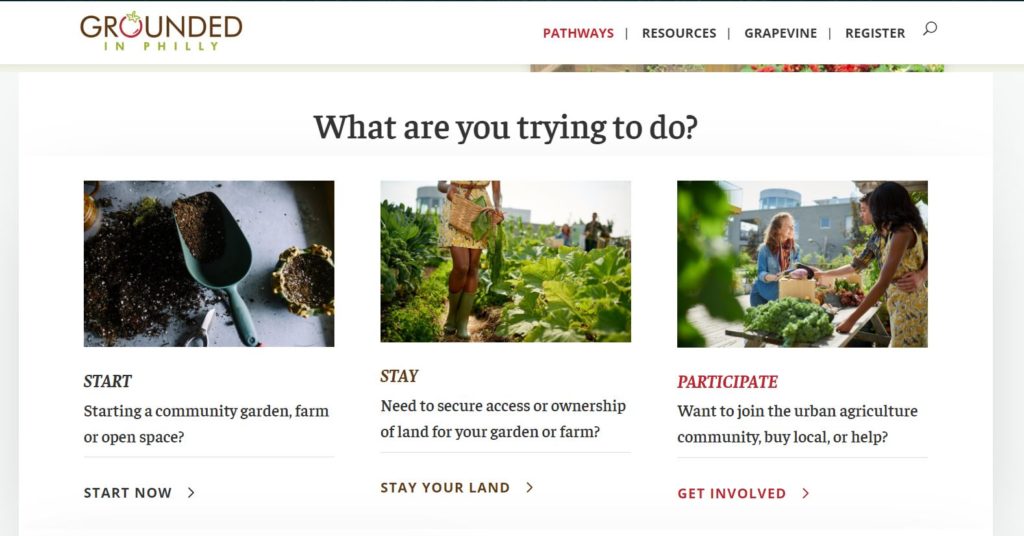Neighborhood gardens grow community as much as food. Now there is online tool to help
 April 15, 2019
Category: Featured, Medium, Purpose
April 15, 2019
Category: Featured, Medium, Purpose
Disclosures
Correction: We removed information misidentifying the event in the caption of the photo, and updated the website link. (4/16/19, 4:50 .m.)Philadelphia’s tradition of community gardening has been part of the city since it’s inception. It’s just the why and the how that have changed.
As communities throughout the region changed and transformed — particularly in the late 20th century with urban renewal projects, the reconfiguration of white flight and the Great Migration relocation of Black and brown people — the area’s plethora of neighborhood gardens, many that were cultivated on neglected land, have served as both a cohesive element in the neighborhood and fill in the gaps for the 300,000 Philadelphians who face food insecurity.
The long-term community gardeners who have tilled hundreds of gardens plots in some of the 40,000 vacant lots in the city have received support in their efforts from the Pennsylvania Horticultural Society, Penn State Extension and the Garden Justice Legal Initiative (GJLI), which on April 11 relaunched Grounded in Philly, an online tool that Ebony Griffin, an attorney with the Public Interest Law Center, said is a resource ecosystem for the gardeners.
The Public Interest Law Center founded the GJLI project in 2011 to provide pro bono legal support, advocacy, and policy research for community gardens and urban farmers in Philadelphia’s communities of color, immigrant and refugee communities, and historically disinvested neighborhoods.
Originally launched in 2013, but substantially overhauled since, Grounded in Philly expands on that mission by, according to GJLI spokesperson Jonathan McJunkin, giving communities greater control over the future of their neighborhoods by fostering relationships between community gardeners and municipal authorities while supporting food access and positive vacant land policies.
That is especially the case, as reported in Grounded in Philly, when community gardeners do not have control over the abandoned land they care for. After years of cultivating the land, those parcels may be targeted for development or other uses.
“[Those gardeners are] able to really go on that website, and get information that they need to help shepherd them through the process,” Griffin said, “and become the first line of defense for [those] who are trying to figure out what their next step should be.” That will allow staff at Public Interest Law Center to focus less on the issue of who owns any given property, and more on other legal questions that impact their clients, Griffin added.
“The goal of the website is to bring together information and resources from not just here, but from other organizations in the city all in one place,” McJunkin said, “and set up in such a way that you can go on to the site, think about what you want to do, then find the resources that are most relevant.”
“For example,” he said, “we will link to this city tool that allows people to view vacant lots according to the council district they are in.”
Ali Jaffar, founder of Key Medium, a local web design firm with a strong community focus, has led the technical and design side of this update.
“I’ve worked with a couple of organizations that ar, similar to this,” said Jaffar, who himself is an urban gardener. “And, this is a huge opportunity to support the community.”
Trending News











